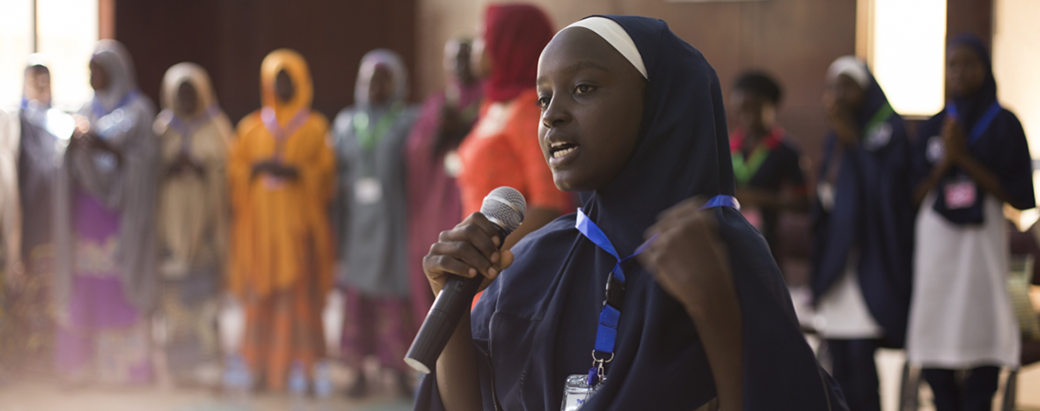
About the Project
This project is one of the 2018 WISE Awards winners.
Safe Space Club for Girls by the Centre for Girl-Child Education uses mentor-led safe spaces, community engagement, subsidization of school fees and training of female teachers to complement government schooling and improving the acquisition of basic academic competencies (literacy and numeracy skills) by girls.
Context and Issue
Despite Nigeria’s enormous oil wealth, poverty is acute and widespread, especially in the north. The region has one of the world’s highest rates of early marriage and maternal mortality and lowest rates of female literacy. The Centre for Girl-Child Education (CGE) is a girls’ education practice and learning hub focused on improving access and quality of schooling for rural and low-income girls in Northern Nigeria. CGE works with girls—both in school and out-of-school—ages 10-18 and residing in rural and urban poor communities. The population in these communities is predominately Hausa-Fulani, an ethnic group of 40 million people deeply rooted in Islam. Nearly all participants are from families with incomes below a dollar a day.
The Solution and Impact
Since 2007, CGE has worked to advance girls’ education and empowerment through innovative programming, advocacy, applied research, and strategic partnerships. CGE was a pioneer in the adaptation of the safe space methodology to girls’ need for strengthened core academic competencies and mentored support as they attend understaffed and underfunded rural schools. The core components of CGE are: community engagement, mentored led safe spaces, subsidization of school fees, training for female teachers, and the nurturing of girl advocates. These components complement government schooling and have evolved over nine years of community-based research with girls, their parents, and community members in rural, Northwest Nigeria.
Future Developments
In our 2007 baseline study, the mean age of marriage in collaborating communities was 14.9 years. Only 4% of the girls graduating from primary schools completed senior secondary. Of the 1120 girls in CGE’s first program 82% have now graduated from secondary school. Kaplan-Meier estimates found an average delay of marriage from 14.9 to 17.4—2.5 years! Virtually all of CGE’s staff are women who were born in the north and who speak fluent Hausa and English languages.


